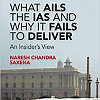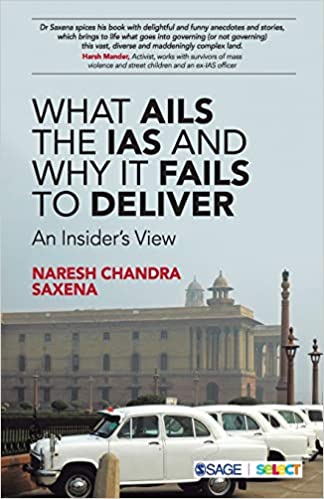Product Specifications
Descriptions
An unorthodox and maverick administrator, the author worked in top policy positions, but the system rejected the reforms that he advocated. In his career he followed the economic philosophy of ‘socialism for the poor and free market for the rich’. However, the political and administrative system in India seemed to believe in ‘indifference to the poor and control over the rich to facilitate rent seeking’.<br />The book is full of anecdotes ranging from how the author resisted political corruption that led to the Prime Minister’s annoyance to a situation when the author himself ‘bribed’ the Chief Minister to scrap oppressive laws against tribal women. As Joint Secretary, Minorities Commission, the author exposed the communal bias of the district administration in handling riots in Meerut; he was punished for bringing to light the killing of innocent Muslim women and children by the police. When Bihar became a ‘failed state’ during the Lalu Prasad Yadav era of 1990–2005, the author did not hesitate in rebuking the Chief Secretary who was his senior in service, and accused IAS officials in Bihar of behaving like English-speaking politicians.<br />Despite their high integrity, hard work and competence, IAS officials do not exercise sufficient control over the field staff who collude with the junior staff in reporting false figures on hunger deaths, malnutrition and usage of toilets, leading to erosion of accountability. Not only do many welfare programmes such as NREGA, ICDS and PDS have design flaws, governance in India at the state and district levels is also quite weak, manifesting itself in poor service delivery, uncaring administration, corruption, and uncoordinated and wasteful public expenditure.<br />Analysing the present Indian situation, the book suggests policy changes in all cross-cutting systemic issues such as the role of politicians, tenure, size and nature of Indian bureaucracy, accountability, monitoring of programmes and civil service reforms, which will transform individual competencies of IAS officers into better collective outcomes.<br />Excerpt<br />The state resources are the most valued prize for both politicians and their constituencies, which leads to a client–patron relationship between the holders of state power and those seeking favours. Patronage is controlled by individuals, not established institutions bound to follow set procedures. Where power is highly personalized and weakly institutionalized, the decision-making process is replaced by arbitrary and behind-the-scene transactions. In such an environment, exercise of power for its clients demands fudging of rules, dependence upon corrupt civil servants, plundering of the public treasury and decay of governance. When the fence starts eating the field, there is little chance of development reaching the poor.
Specifications
ISBN-13
9789353286484
ISBN-10
9353286484
Cover Type
Paperback
Language
English
No. Of Pages
276
Author
Naresh Chandra Saxena
Publisher
Sage Publishing
Country
India

